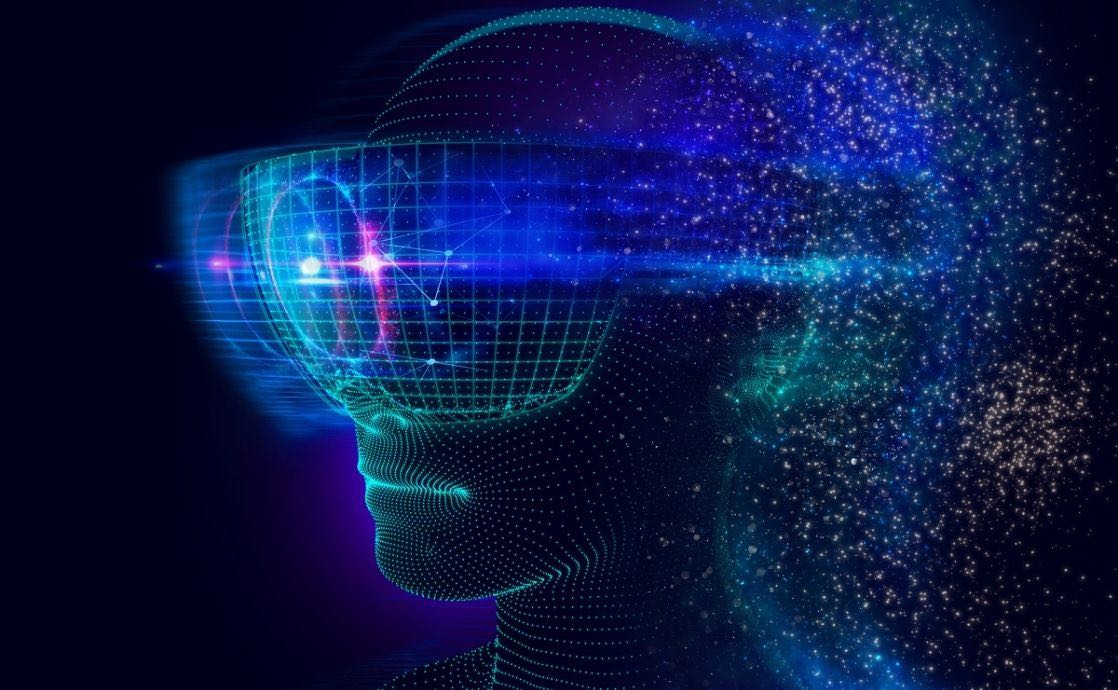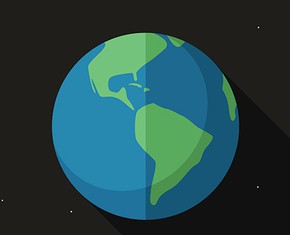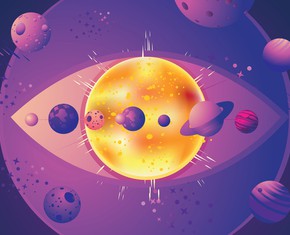The views expressed in our content reflect individual perspectives and do not represent the authoritative views of the Baha'i Faith.
If the universe is a hologram, what does that imply about our lives and how we operate in this world?
Take a deep dive with me as I explore the nature of our physical reality and the illusions that permeate it.
What Does Physical Reality Mean?

Baha’is believe that humanity has two realities:
a reality connected with the senses which is shared in common with the animal, and another reality which is conscious and ideal in character.
This reality that we perceive through our senses is our physical reality. This includes our interactions and experiences with this physical world. To understand the nature of our physical existence, we need to take a closer look at how our perception of reality is created.
Is Our Perception of Physical Reality an Illusion?

Our five senses are criteria we often use to perceive and understand our physical reality. But are our senses reliable, or are they creating mere illusions? At a talk in San Francisco in 1912, Abdu’l-Baha, one of the central figures of the Baha’i Faith explained:
Among the senses the most powerful and reliable is that of sight. This sense views a mirage as a body of water and is positive as to its character, whereas a mirage is nonexistent. The sense of vision, or sight, sees reflected images in a mirror as verities, when reason declares them to be nonexistent. The eye sees the sun and planets revolving around the earth, whereas in reality the sun is stationary, central, and the earth revolves upon its own axis. The sense of sight sees the earth as a plane, whereas the faculty of reason discovers it to be spherical.
The eye views the heavenly bodies in boundless space as small and insignificant, whereas reason declares them to be colossal suns. The sense of sight beholds a whirling spark of fire as a circle of light and is without doubt as to it, whereas such a circle is nonexistent. A man sailing in a ship sees the banks on either side as if they were moving, whereas the ship is moving. Briefly, there are many instances and evidences which disprove the assertion that tangibilities and sense impressions are certainties, for the senses are misleading and often mistaken. How, then, can we rightly declare that they prove reality when the standard or criterion itself is defective?
As Dr. Anil Seth, the professor of cognitive and computational neuroscience at the University of Sussex, explained in a TED Talk in 2017, “…our conscious experiences of the world around us, and of ourselves within it, are kinds of controlled hallucinations that happen with, through, and because of our living bodies.”
Our brain does its best to use the sensory information we receive, along with our memories and previous experiences, to form predictions and assumptions about our world. Physicists say that this process is critical for our survival in our environment. But, these assumptions are based on misleading criteria.
Dr. Seth reiterated, “If hallucination is a kind of uncontrolled perception, then perception right here and right now is also a kind of hallucination, but a controlled hallucination in which the brain’s predictions are being reined in by sensory information from the world. In fact, we’re all hallucinating all the time, including right now. It’s just that when we agree about our hallucinations, we call that reality.”
If Our Physical Reality Is an Illusion, Then Is the Universe a Hologram?

If our physical reality is an illusion, then what does that imply about our life on this physical plane and how we operate in the universe? Abdu’l-Baha wrote:
This present life is even as a swelling wave, or a mirage, or drifting shadows.
…Know thou that the Kingdom [of God] is the real world, and this nether place is only its shadow stretching out. A shadow hath no life of its own; its existence is only a fantasy, and nothing more; it is but images reflected in water, and seeming as pictures to the eye.
These reflected images on this physical plane that are only shadows of the real, divine world can be explained by the theory in theoretical physics that the universe is a hologram. This theory operates on the idea that the physical universe is an illusion — a giant holographic projection from an unseen higher reality. At a talk in New York in 1912, Abdu’l-Baha said:
The spiritual world is like unto the phenomenal world. They are the exact counterpart of each other. Whatever objects appear in this world of existence are the outer pictures of the world of heaven.
And, as explained by John Medina, a Baha’i and author of the book, “Faith, Physics, and Psychology: Rethinking Society and the Human Spirit,” the holographic principle also asserts that “every entity, whether it be a person, a stone, or an atom, carries within it every form of energy, matter, consciousness, and life that ever proceeded out of that deeper reality.”
RELATED: We’re All Made of Stars. What Does This Mean Spiritually?
As Baha’u’llah, the prophet and founder of the Baha’i Faith, asked in the book “The Call of the Divine Beloved”:
Dost thou deem thyself a small and puny form,
When thou foldest within thyself the greater world?
Like a drop, we each have our own unique identity and perspective, yet we belong to a vast ocean of knowledge, energy, and power.
Although our life on this earthly plane is an illusion compared to a higher power, we each still exist as a reflection. God created us out of love, and we must do our best to reflect His light as brilliantly as we can.
















Comments
Sign in or create an account
Continue with Googleor